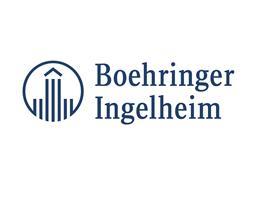This article – the second in a four-part series looking at services for patients with Interstitial Lung Disease (ILD) – looks in particular at the pathway, and how a more optimal pathway could improve service delivery. The article has been initiated, funded, and written by Boehringer Ingelheim.
ILD is a particularly difficult condition for patients. It can cause scarring (pulmonary fibrosis) and inflammation of the lungs.[1] This damage makes the lungs become thickened and stiff and less elastic, so breathing becomes more restrictive and it is more difficult to take in oxygen. For the estimated 3,000 to 15,000 people diagnosed with ILD in England each year,[2] there is currently no national pathway supported by appropriate workforce and data that sets the standard of care. NHS England’s (NHSE) service specification setting out the provision of ILD services was last updated in 2019, before the pandemic.[3] This means the journey through the system is fragmented and patients can experience a postcode lottery in access to optimal ILD care, impacting outcomes and system performance as a whole.
Sponsored by
ILD services are part commissioned nationally through the NHSE Specialised Commissioning team, but NHSE are embarking on system reform that delegates specialised commissioning powers to integrated care boards (ICBs). As funding for ILD services moved to ICBs from April 2023, there will be opportunities to optimise the current model of care to best suit local population needs and improve equity of access.
However, there are risks that moving to system-level commissioning may enhance health inequalities meaning some ILD patients, especially in integrated care systems (ICSs) that are not performing well or focus priorities elsewhere, may not receive optimal care across the pathway. In this environment, there is an urgent need for a national designed ILD patient pathway linking first diagnosis in primary care through to social or palliative care to help prevent varying outcomes and worsening health inequalities as well as reduce the burden on the NHS.
A breadth of challenges are driving varying outcomes for patients, particularly in light of COVID-19 and constraints on diagnosis and referral. Waiting times to be seen in a clinic for new patients vary significantly ranging from 5 weeks to more than 15 weeks due to physician and appointment shortages.[2] Diagnostic delays negatively impact progression-free survival, quality of life, symptoms and hospitalisation rates in patients with idiopathic pulmonary fibrosis (IPF). Patients with long delays experience disease progression or death much faster than those with short delays, as well as higher hospitalisation rates.[4]
Establishing a joined-up ILD pathway that improves time to diagnosis and disease management will help to improve patient outcomes, but also system sustainability. Accelerating diagnosis of ILD and treatment initiation is likely to slow down disease-progression, and thereby reduce hospital admissions and improve quality of life.[4][5] Furthermore, improving the pathway can ease demand on ILD hospital services by reducing hospital admissions and outpatient appointments that can be dealt with outside of hospital. This frees up time and resources for specialist centres to focus on more complex cases, which is particularly important in winter when respiratory diseases contribute significantly to annual system pressures.[6]
A designed national ILD pathway from first diagnosis through to social or palliative care and an updated service specification is paramount in addressing these varying outcomes and curtailing health inequalities as ICSs take charge of commissioning. It is important to allow local ICBs autonomy to tailor services to local needs, but this should be within a national framework to drive common standards. At the same time, the national pathway must be matched with appropriate funding to improve the ILD workforce and data collection across the pathway, otherwise efforts to improve patient outcomes and establish more sustainable health systems will not be realised. We will continue to explore these issues in future articles.
It is time to establish an appropriately funded national pathway covering workforce and data improvements that sets the standard of ILD care to support local systems to better serve ILD patients’ and system needs.
Job bag number: NP-GB-103629
Date of preparation: October 2023
Source
[1] National Health Service. Overview – idiopathic pulmonary fibrosis. Last reviewed October 2022. Available at: https://www.nhs.uk/conditions/idiopathic-pulmonary-fibrosis/#:~:text=Causes%20of%20idiopathic%20pulmonary%20fibrosis,this%20happens%20is%20not%20clear
[2] Quint J., et al. Boehringer Ingelheim and ILD Expert Group – White Paper - Interstitial Lung disease: Driving towards service optimisation in the new NHS. November 2022.
[3] National Health Service. Interstitial Lung Disease (Adults) Service Specification. June 2017. Available at: https://www.england.nhs.uk/publication/interstitial-lung-disease-adults-service-specification/.
[4] Hoyer, N., et al. Diagnostic delays in IPF impacts progression-free survival, quality of life and hospitalisation rates. BMJ Open Respiratory Research. 2022. 9(1). Available at: https://doi.org/10.1136/bmjresp-2022-001276.
[5] Fischer A, Patel NM, Volkmann ER. Interstitial lung disease in systemic sclerosis: focus on early detection and intervention. Open Access Rheumatol. 2019. 11:283-307. Available at: https://doi.org/10.2147/OARRR.S226695.
[6] National Health Service England. Respiratory disease. Available at: https://www.england.nhs.uk/ourwork/clinical-policy/respiratory-disease/. (Accessed April 2023).

























